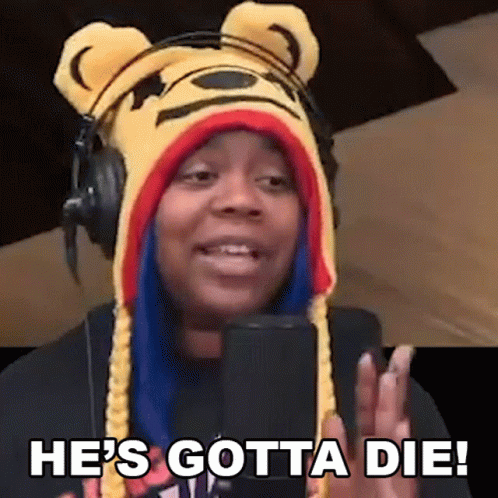 I think all writers recognize this one, but I had a really hard morning because something really terrible happened.
I think all writers recognize this one, but I had a really hard morning because something really terrible happened.
I had to kill a major character in a series of books and I feel really bad about it.
Let’s talk about it.
Yes, that is a bit over the top. I don’t really feel that bad. If it serves the story, as this certainly does, then it has to get done. Characters die. It’s just the way the writing game goes.
This one, though, he’s been around for 5 books now, not just as a side character, not just as someone who was around once in a while, but a character who has been a central focus for thousands and thousands of pages so far.
Now he’s dead.
 I see a lot of authors doing one of two things, either complaining about how they feel awful when they have to kill off a beloved character, or to go to the opposite extreme, how they’re just looking for ways to torture their characters because they get off on it.
I see a lot of authors doing one of two things, either complaining about how they feel awful when they have to kill off a beloved character, or to go to the opposite extreme, how they’re just looking for ways to torture their characters because they get off on it.
I do neither.
Whatever happens within the pages of one of my books, it happens because it moves the story along. I don’t feel bad because I’m telling an engaging story. If character X needs to go for the good of the storyline, adios! It’s time to shuffle off to Buffalo!
Granted, I never make these decisions lightly. I don’t fridge any characters, just to motivate someone else to get their backside in gear. I don’t create disposable characters expressly for the purpose of killing them off. That’s cheap. Every character that I kill, they’re important. They have had long-running character arcs and have developed in a way that the reader becomes attached to them.
 No, that doesn’t mean that I did it all, just to tug at the reader’s heartstrings either. The emotional reaction comes from the attachment that the reader had and the circumstances under which the character died. It’s not a cheap excuse for tears.
No, that doesn’t mean that I did it all, just to tug at the reader’s heartstrings either. The emotional reaction comes from the attachment that the reader had and the circumstances under which the character died. It’s not a cheap excuse for tears.
In this case, I knew, from pretty early on, that he’d have to die, eventually. When I was plotting out this 13-book series, I figured that by book 5, he was going to have to go. I figure I came up with that as far back as book #2.
In fact, I decided as I was plotting this book that the death would happen in chapter 10. I even set up the circumstances at the end of the last book. There was no going back. He was going to die.
That doesn’t mean that I look forward to it. I’ve been dreading the last half of chapter 10 and especially chapter 11 where it gets worse for a while now. However, it has to be done and today, I “done it”.
It doesn’t make it feel any better.
 When I do character deaths, especially this one, there’s a lot of emotionalism involved. It’s not just “bang!” and that’s the end of it. All of this has been building up for a long time. Everyone has been dreading it for hundreds of pages.
When I do character deaths, especially this one, there’s a lot of emotionalism involved. It’s not just “bang!” and that’s the end of it. All of this has been building up for a long time. Everyone has been dreading it for hundreds of pages.
Now, it’s over and it was every bit as terrible as I thought it would be. That’s a good thing.
Not only did I kill him off, but then I wrote an entire chapter where everyone else mourned. There was a memorial service, for crying out loud, where multiple people got up and tearfully told tales of this guy’s life. The readers are going to be bawling their eyes out, because I was.
If your writing doesn’t evoke an emotional reaction in you, it’ll never affect the reader. I can’t tell you how many books I’ve written where I’ve got tears running down my face at the end. I will go back to re-read my own books, just to revisit that reaction. Apparently, I’m very good at pathos.
 Yet that only comes from building it up. I don’t do it for shock value. It’s really rare where I will have someone killed out of the blue. “Bang, they’re dead!” That doesn’t happen much.
Yet that only comes from building it up. I don’t do it for shock value. It’s really rare where I will have someone killed out of the blue. “Bang, they’re dead!” That doesn’t happen much.
It’s the long, drawn-out foreshadowing and then, when it happens, everyone around them is devastated, that’s what does it. Death has to mean something and in so many books, it really doesn’t. This death is going to impact the story for hundreds of pages to come.
That doesn’t make it any easier to write. I just think it’s worth it in the end.